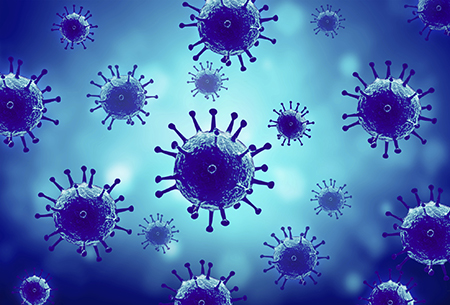
Research at the University of Liverpool could benefit millions of HIV patients in developing countries through a nano-technology programme aimed at making drug treatment more effective.
The Liverpool programme to date has focused on developing nano-sized particles of antiretroviral drugs to increase their stability and absorption. However, a significant number of HIV treatments are not compatible with current technologies.
Broaden the capabilities
To address this, the University is collaborating with the Clinton Health Access Initiative (CHAI) in an attempt to broaden the capabilities of nano-technology. They will work with a widely used HIV drug, and combine that with commonly used ingredients in an attempt to create stable nano-particles.
According to World Health Organisation (WHO) figures, 9.7 million people had access to antiretroviral therapy around the world in 2012, but there are estimated to be 35.3 million people living with HIV. With a limited health budget in developing countries, authorities face difficult challenges in making more treatment available.
Nanomedicine is an emerging field of drug development that utilises particles at the nano scale (one millionth of a millimetre). One of the benefits of these types of therapies is that they can increase the amount of drug where it is needed. In the case of this research, the goal is to prevent drug degradation in the intestine through the use of nano-particles.
Liverpool pharmacologist, Professor Andrew Owen and CHAI senior director of research and development, Dr Paul L. Domanico are leading this project. Professor Owen said: “This project is about using practical science and clinical expertise to broaden the utility of a new technology. These approaches could deliver a step-change for drug delivery in cases of HIV.”
Dr Domanico added, “This project partners two substantial organisations committed to transforming the treatment of disease for patients in low resource settings.”
Nanomedicine candidates will be generated and characterised in the University’s Department of Chemistry by Professor Steve Rannard’s team and subsequently studied in the Department of Molecular and Clinical Pharmacology under the supervision of Professor Andrew Owen and Dr Marco Siccardi. The research will also use state-of-the-art mathematical modelling techniques to bridge between disciplines.
Preclinical data published
The research builds on existing HIV work between the University’s Department of Molecular and Clinical Pharmacology and Department of Chemistry that has already received more than £6 million investment. The project will also be support by existing and on-going preclinical pharmacology studies performed by CHAI.
The Liverpool team has published preclinical data showing that that there may be benefits for dose reduction of other HIV drugs and clinical trials are planned for later in 2014. If successful these would form the first oral nanomedicines for HIV.
Find out more about about studying at University of Liverpool, please visit our Study pages.